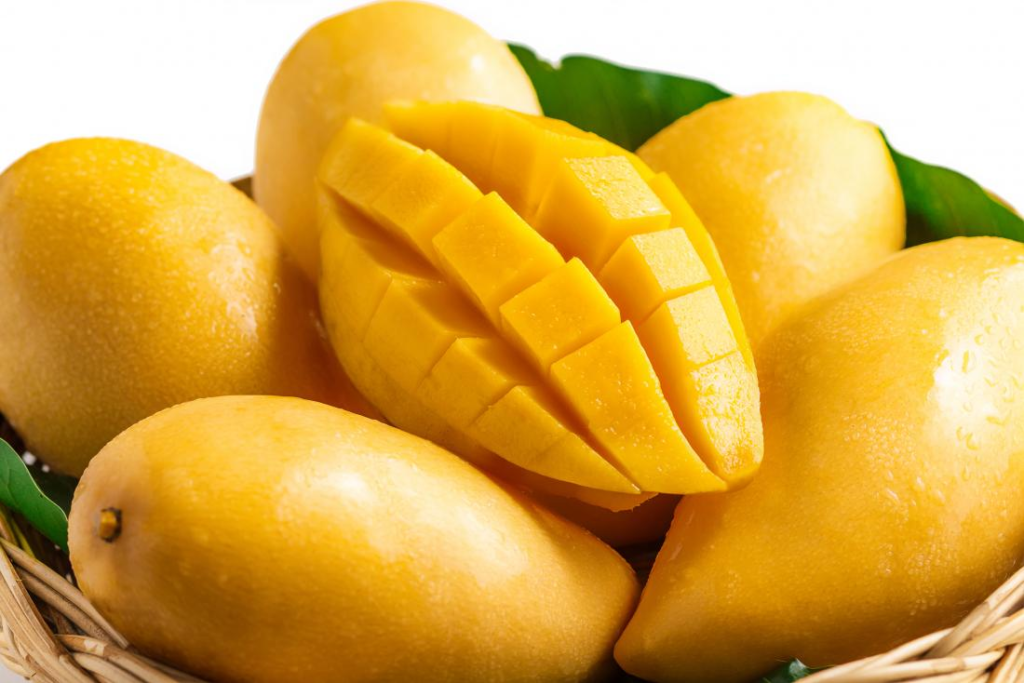
Mangoes are celebrated not only for their delightful taste but also for their significant health benefits and their esteemed position in Ayurvedic medicine. Here are ten nutritional benefits of mangoes and some tips on how to consume them according to Ayurvedic principles:
Nutritional Benefits of Mangoes
- Rich in Essential Nutrients: Mangoes provide a plethora of vitamins such as A, C, and E, and minerals like potassium and magnesium, which are crucial for immune health, skin quality, and maintaining electrolyte balance.
- Digestive Health: Mangoes contain digestive enzymes like amylase which aid in breaking down food and improving digestion. They can alleviate issues like indigestion and constipation.
- Heart Health: High in fiber, potassium, and antioxidants, mangoes help in managing blood pressure, reducing cholesterol, and supporting overall heart health.
- Vision Support: Rich in vitamin A, mangoes contribute to the maintenance of healthy vision and can help prevent conditions like macular degeneration.
- Immunity Boosting: The high vitamin C content enhances immune function, helping the body ward off infections.
- Aids Weight Management: High fiber content in mangoes helps in weight management by promoting a feeling of fullness and reducing the likelihood of overeating.
- Alleviates Heat Stress: According to Ayurveda, mangoes have a cooling effect on the body and can help prevent heat-related illnesses during summer.
- Brain Health: Mangoes are a good source of vitamin B6, which is vital for brain development and keeping the nervous system healthy.
- Detoxification: Mangoes have diuretic properties that help in detoxifying the body and promoting renal health.
- Skin Care: The vitamins and antioxidants in mangoes help nourish the skin, reduce signs of aging, and can also be used topically to moisturize and soothe skin.
Ayurvedic Recommendations for Consuming Mangoes
- Ripe vs. Unripe: Ayurveda recommends consuming ripe mangoes as they are easier to digest and cool the body. Unripe mangoes may be used sparingly in cooking as they can be astringent and sour.
- Meal Times: Mangoes are best eaten on their own as a snack between meals to avoid indigestion. They should not be combined with meals, especially with protein, as the natural sugars can ferment and cause bloating.
- Seasonal Consumption: Mangoes are ideally consumed in late spring and summer, aligning with their natural harvesting time. This supports the body’s seasonal nutritional needs.
- Preparation: Mangoes can be enjoyed fresh or used in smoothies. Ayurveda also recommends preparing them in lassi—a yogurt-based drink—to enhance their cooling effects.
- Pacifying Doshas: Mangoes are particularly beneficial for pacifying Pitta dosha. Individuals with high Pitta can consume mangoes to balance their inner heat.
Incorporating mangoes into your diet can not only add a delightful flavor but also contribute significantly to your health, particularly if you follow these Ayurvedic practices to maximize their benefits.






































Leave a Reply